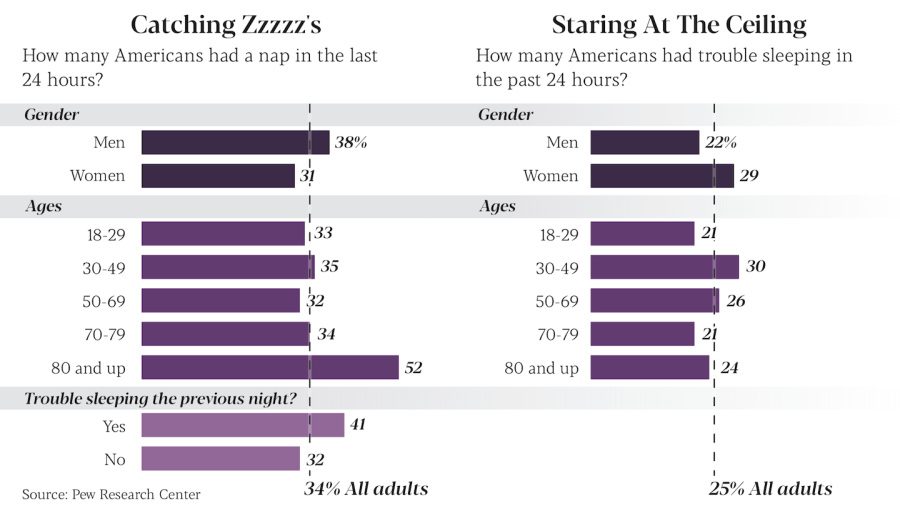Sneaking in a nap during the day can feel like a rare indulgence, but more than one-third of surveyed U.S. adults reported catching some afternoon z’s in the past 24 hours, according to a study. Getting enough sleep is essential to human health, mood and mental acuity, and naps can’t replace getting the recommended seven to eight hours of shut-eye each night. But if your eyelids are fluttering during the day, a short nap will eliminate sleepiness and improve alertness for hours after.

The popularity of napping may have something to do with the same study’s finding that one-quarter of the people surveyed also reported troubled sleep. The study, conducted in 2009 by the Pew Research Center, quizzed a representative sample of 1,488 American adults on their sleep habits.
Perhaps unsurprisingly, men older than 50 napped more than anyone, with 41 percent of older gentlemen nodding off while the sun’s still up. Despite napping less than men on average, more women reported not getting enough quality sleep — 29 percent compared with 22 percent of men.
A nap can be a beautiful thing if you didn’t get enough sleep, but it can also have drawbacks. Snooze for too long (longer than about a half hour) or too late in the day relative to your bedtime, and naps can leave you groggy or unable to get to sleep at night. The best time for a “siesta” is around 1 p.m. if you wake up early, or around 2:30 p.m. if your day starts a bit later.
If frequent napping is a response to chronically undersleeping, it might be worth trying to address what’s impacting your nighttime sleep.
Anxiety, depression and trauma can all cause sleepless nights. Mental health issues can be symptoms of troubled sleep as well as causes, so teasing them apart can be a challenge. The Pew study found 46 percent of people who reported trouble sleeping in the previous 24 hours identified themselves as not too happy, compared with just 18 percent of very happy adults.
This correlation extends to napping, but the comparison isn’t as stark, with 43 percent of unhappy survey takers napping versus 31 percent of the happy ones. But seeking to improve mental health with self-care or talk therapy can open the door to better sleep. In most cases, experts now consider sleeping pills to be a last resort.
But if you’re a napper, don’t feel guilty — you’re not alone.
changing america copyright.
